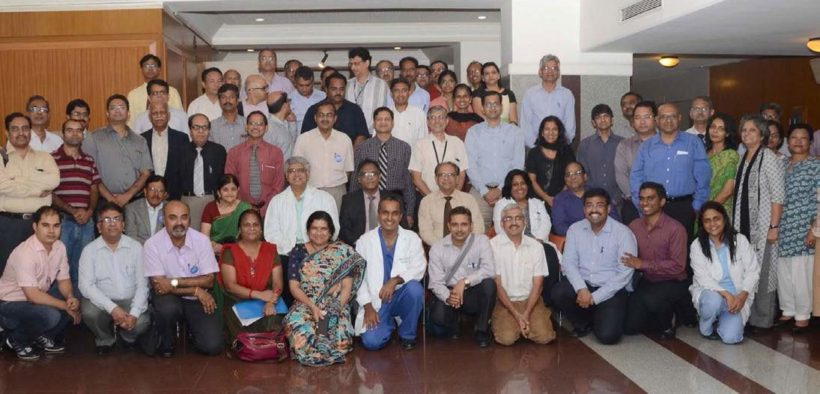Network That Cares

The National Cancer Grid hopes to provide proper care to all cancer patients across the country
By shana susan ninan
Forming one of the largest medical networks in India and covering more than 60% of the country’s cancer hospitals and research centers, the National Cancer Grid (NCG) is poised to deliver on its promises. In a recently held meeting, more than 150 participants from 108 centers got together to strengthen NCG’s mandate to provide modest care and services to all cancer patients.
The initiative was established in August 2012, linking cancer centers across India. It is one of the largest networks in the world that caters to cancer treatment and research. The NCG is funded by the Government of India through the Department of Atomic Energy. Currently, there is no streamlined effort to standardize the diagnosis, treatment, and after-care for patients and their families. The NCG’s work is cut out to minimize the inconsistencies in the standards of patient care in various parts of India, the staff at the various centers will have to collaborate regularly at multiple levels. “With the aim of creating a National Cancer Policy for India, Tata Memorial Centre is aiming to get on board as many hospitals and research centers as possible,” states Dr. Praveen Kammar, Mumbai-based surgical oncologist, who works with the Tata Memorial Centre. He believes that the inter-center knowledge sharing and pooling-in of resources using the virtual tumor board and digital nerve centers will facilitate knowledge and research at a higher level. “We need to spread knowledge and quality training, to ensure we have trained oncological experts in the future.”

Evidence-based management guidelines to run the operations, treatment, and research will definitely build a large body of work. New and existing cancer patients and even survivors can draw from this. “Each hospital has its own policies and internal intricacies, and often patients lose precious time and money in tortuous procedures,” says Sara Mammen, a cancer survivor. “A centrally regulated system will be very beneficial for us.” Is it just patients who will be benefitted from this streamlining and standardization? Not at all.
As Dr. Donald John Babu, Surgical Oncologist and Programme Director of Robotic Surgery in MGM Hospital, Navi Mumbai, clearly states, “Advances in oncology are fast-emerging, with a lot of scope for research and collaboration.” His association with the NCG policy-making and implementation processes at Tata Memorial Centre has given him deeper insights into a system that looks promising. “The NCG is going to be like the ISO-mark for oncologists, oncology practices, allied services and for physicians and medical professionals in the oncology field. Right now, India is following the guidelines created by and practiced in foreign countries.” He adds, “NCG is harnessing its energies to create a single, central database of patients, medical professionals, and services in this field. The protocols thus coming out of the current decision-making meetings and initiatives will be India-specific, and pertain to our geographical, demographical and genetic mark-up.” It is time-consuming and would take a couple of years before the protocols and policies are set in place. The end result would be that India would have its own system of the application when it comes to Oncological Practices.
Some of the immediate steps include a systematic collection of data of every patient being treated at a cancer center that is registered in the NCG. This aids in profiling cancer cases that are brought to the center, and also looks at how the center treats the various cancers that are prevalent there. This will lead to a comprehensive review of the several processes that each center handles, identifying the strengths and weakness and correcting the same, each time. Reviews and audits will definitely keep the centers at par with each other, thereby ensuring the easing of urban-rural or economic divides. By 2035, as projected by the International Agency for Research on Cancer GLOBOCAN, India would have approximately 1.7 million cancer cases. And, even more alarmingly, the number of cancer deaths is expected to go up to 1.2 million by then. Mithun Paul, a 34-year-old pharmacist from Kerala, believes that the NCG will prove to be an efficient platform for cancer patients across states, especially with regard to standardization and the cost of treatment. “The proposed uniform standards to be provided by NCG will undoubtedly benefit the systematic diagnosis and treatment of cancer across the country. Also, the inter-institutional research will be a space for young oncologists to prove their mettle.”
















